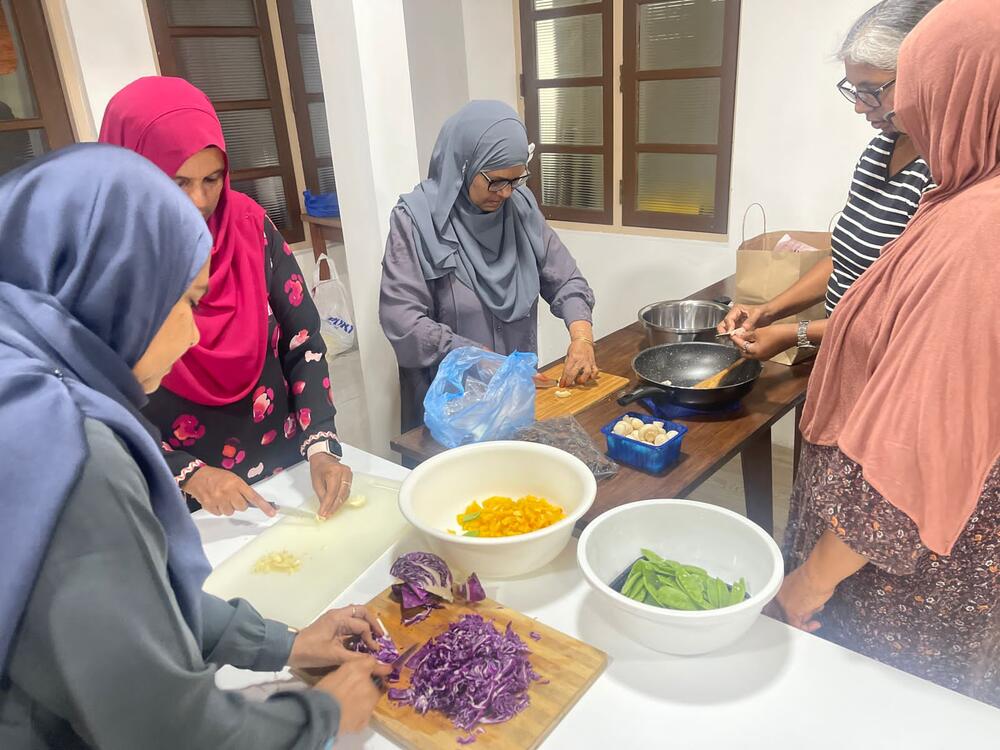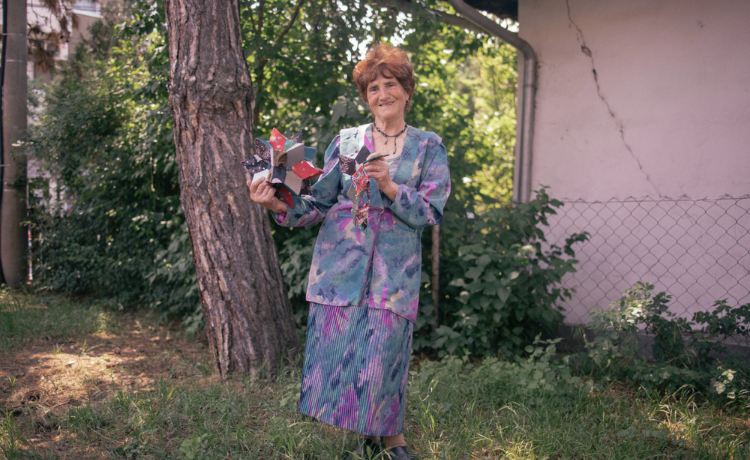News
Harnessing the potential of older persons through UNFPA-supported programmes in the Maldives and Serbia
- 30 September 2024
News
MALÉ, Maldives / KRAGUJEVAC, Serbia – The global population is ageing. According to United Nations data, life expectancy is bouncing back following the COVID-19 pandemic, and by 2080, the size of the population aged 65 and over will eclipse that of children under 18.
Some countries’ populations are maturing faster than others, a process that has sparked panic among policymakers who worry that “too many” older people could overload health-care and pension systems, depress economic productivity and send countries into decline.
These anxieties do not reflect reality. Research shows older countries can be economic powerhouses; in Japan, the world’s fourth-largest economy, people 65 and over make up almost 14 per cent of the workforce. And across every society, older individuals play crucial roles as keepers of ancestral knowledge, caregivers and community leaders.
Countries stand to gain substantially by harnessing the potential of older populations. But doing so requires first satisfying their rights and meeting their needs, including for strengthened health, care and education services as they age. Below, read about how two countries – the Maldives and Serbia – have partnered with UNFPA, the United Nations sexual and reproductive health agency, to support older women and men.
Active ageing in the Maldives

The Maldives’ ageing population – expected to more than double in size over the next three decades – has benefited from decades of economic development and advances in health care. Polio, measles and syphilis, once leading drivers of death, have been relegated to the past.
Longevity has brought its own challenges, as older persons are increasingly confronting non-communicable illnesses such as hypertension, heart disease and cancer. But a healthy lifestyle can go a long way towards helping ageing adults avoid these issues.
In July 2024, UNFPA launched a new programme called Hattah (“For the Body” in English), which offers adults 55 and older the opportunity to take classes on nutrition, physical activity and overall well-being at the senior citizens’ centre in Malé, Naadhee. At a recent session, participants learned the benefits of cooking with herbs and spices like moringa leaves and turmeric to support digestive health and improve their diet.
This programme also offers sessions aimed at educating older persons on how ageing affects their bodies, empowering them to make informed choices about their health and to embrace ageing with dignity.
"I’ve gained so much valuable knowledge today, particularly about improving my health,” said Saeedha Mohamed. “I feel empowered with new ways to take better care of myself."
Never too old in Serbia

In Serbia, more than half of older individuals report feeling discriminated against, according to UNFPA, and two thirds say they feel lonely. With older men and women projected to represent one in four people in the country by 2041, addressing these concerns has become vital to ensuring the health, well-being and social inclusion of a fast-growing contingent of Serbia’s population.
At the Corner for Quality Ageing in Kragujevac, central Serbia, however, older people are the soul of community social life. Founded in 2012 by the Red Cross, it runs myriad programmes, from literary workshops to musical performances. Doctors also visit the centre to offer health services and provide older persons advice on issues such as age-appropriate nutrition.
"I like to come to the Corner because I get to know and learn new things, see dear people and meet new ones,” Draginja Antic told UNFPA. “You're never too old for new friends, right?"
On major holidays, members organize “Baskets of Goodness” to distribute to vulnerable families and individuals, and in the fall and winter, they knit and donate socks, scarves, hats and gloves. Amid the global lockdowns in 2020, members also set up the “Hello, how are you?” programme, which saw them reaching out to other older persons to check in and chat.
“[Healthy ageing] means not giving up on things: Travel, love, work, dreams,” the Corner’s president, Milka Ignjatović, told UNFPA.